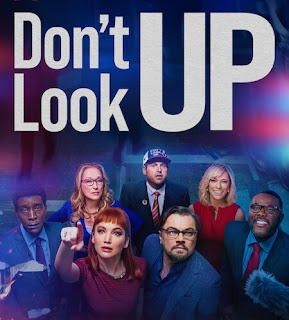Those of you who are regular readers of this blog are likely aware that I am a big “fan” of Brian McLaren. In a March 2017 blog post, I placed him on my list of “Ten Most Admired Contemporary Christians,” and he is on my list of “Top Ten” theologians and/or philosophers by whom I have been influenced.*1
Beginning with McLaren’s book A New Kind of Christian (2002), the first of a trilogy that was significant theology written as novels, I have read many of McLaren’s fifteen sole-authored books and learned much from them.
That emphasis on the Kingdom of God being
primarily about human society in the present world rather than the heavenly
realm where individuals are transported upon death is a major reason many
contemporary conservative Christians do not regard McLaren highly.
Brian (b. 1956) first wrote about the
growing global ecological crisis in Everything Must Change, his 2007
book which I finished reading in June 2008. I thought it was so significant
that in 2020 I placed it on the list of my favorite non-fiction 21st-century
books.*3
Since I don’t include more than one
book by the same author in my list of favorite books, I have replaced McLaren’s
previous books in the list just mentioned with Life After Doom: Wisdom and
Courage for a World Falling Apart, which was published the middle of last
month.
McLaren’s Life After Doom is essential
reading for all of us
who know about and care about the future of life on planet Earth. On the dust
jacket, environmentalist Bill McKibben says this book is as “rich and
thoughtful as all of Brian McLaren's work, but with a particular urgency!” I
fully agree.
Early in “Welcome to Reality,” the
second chapter, McLaren succinctly sets forth the diagnosis of the predicament he
examines throughout the book: “Our global civilization as currently structured
is unstable and unsustainable” (p. 23).
Some scientists and eco-theologians,
especially William Catton, Jr., and Michael Dowd, have made this same
diagnosis.*4 But this is the first time a major Christian
writer has analyzed that predicament so thoroughly and so clearly—and with a
pastor’s heart.
Throughout this challenging book,
McLaren explores four possible scenarios for the years ahead. In the second
chapter, he calls those scenarios 1) “Collapse Avoidance,” 2)
“Collapse/Rebirth,” 3) “Collapse/Survival,” and 4) “Collapse/Extinction.”
Since it is clear that he thinks only
the last three are feasible, at the end of the first chapter he warned his
readers that the following chapter would be “rough sledding.” Then chapters three
and four are “pastoral” in nature: he helps his readers face the fearful future
in ways that are not debilitating.
How can/should we live life after
doom? In the
fourth/last part of his book, McLaren elucidates what he calls “a path of agile
engagement.” Michael Dowd’s emphasis on “post doom, no gloom” provided helpful
light for these dark times. McLaren’s last chapters are even more beneficial
and encouraging.
In chapter 17, Brian repeatedly
stresses that despite all the ugliness, “beauty abounds.” In the next chapter,
he cites and heartily agrees with the words, “It is a magnificent thing to be
alive in a moment that matters so much” (p. 224).
Chapter 19 emphasizes the need to live
with the dream of the kingdom of God which is “not a destination after death:
it is the higher, bigger, vaster, deeper way of life here and now” (p. 236).
The following chapter is “Find Your
Light and Shine It.” If we do that, even in this time of doom, we can have “an
abundant life, a meaningful life, abounding with beauty … whatever the future
may hold” (p. 249).
“Whatever you do, it matters.” Those words (on p. 253) are the crux
of McLaren's final chapter, which closes with 15 numbered paragraphs expounding
that basic assertion.
So, even if we are—or because we are(!)—living
life after doom, let’s live resiliently, not giving up, giving in, or giving
out. Paraphrasing Maya Angelou, let’s do the best we can until we know
better—and then, let’s do better!
____
*1 I first published that list
in my book subtitled The Story of My Life from Birth until My 82nd
Birthday (2020).
*2 That emphasis was also the
title of #7 in my book Thirty True
Things Everyone Needs to Know Now (2019).
*3 In the 2023 updated version of my life story book, I
replaced McLaren’s 2007 book with Do I Stay Christian? which was
published in 2022.
*4 In Appendix 1, McLaren lists what he considers the
five best books dealing with “our predicament.” The first is William Catton’s Overshoot
(1982)—and “The Most Important Book You’ve Never Read,” my 2/23/23 blog post, is about Catton’s book. Then McLaren gives Michael
Dowd’s videos as the first of the five best video/audio resources. Many of you
will remember that I have written about Dowd several times, the first being in
my 1/25/22 blog post. McLaren mentions that Dowd was his friend who died
while he (Brian) was writing this book.










.jpg)